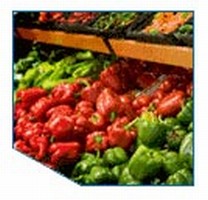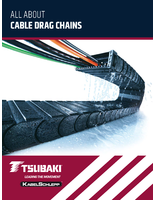ANSI announces food safety agreement between retailers.

Press Release Summary:

Seven of the world's leading retailers have agreed to rely upon food safety and quality management systems that meet rigorous standards for production, preparation, transport, storage, and handling. Under the GFSI, the retailers will recognize certification programs accredited by ANSI under the Food Marketing Institute's Safe Quality Food (SQF 2000) standard. The SQF programs encompass raw materials and ingredients to prepared and processed foods.
Original Press Release:
ANSI Engaged in Implementation of Global Food Safety Program
Landmark agreement to strengthen food supply chain
New York August 8, 2007
Seven of the world's leading retailers - including U.S.-based powerhouse Wal-Mart - have agreed to rely upon food safety and quality management systems that have been certified as meeting rigorous standards for production, preparation, transport, storage and handling. Agreed at a recent meeting of CIES - The Food Business Forum, the pact focuses on ensuring the continual improvement of food safety systems worldwide and driving supply chain efficiency by reducing the duplication of audits for global importers and exporters.
Under the umbrella of the Global Food Safety Initiative (GFSI), the retailers will mutually recognize certification programs such as those accredited by the American National Standards Institute (ANSI) under the Food Marketing Institute's (FMI) Safe Quality Food (SQF 2000) standard; three other food safety management schemes will also be recognized.
ANSI has partnered with FMI since 2004 to improve food quality and safety by providing a neutral, third-party verification that SQF certification program requirements (SQF 1000 or SQF 2000) have been met. The SQF programs encompass raw materials and ingredients to prepared and processed foods.
"Consumers want to have confidence in the quality and safety of the food they eat," said Reinaldo Figueiredo, ANSI program director of product certification accreditation. "Food suppliers - and the regulatory bodies that monitor them - demand an assurance that stringent food safety standards are being followed, regardless of where in the world the food is coming from. ANSI is proud to add value to this process."
ANSI accreditation verifies the competence of certification bodies to assess compliance with standards. It also helps to promote best industry practices while reducing the need for government agencies to individually monitor credentialing organizations, and strengthening consumer confidence in products and services. All certification bodies that are accredited by ANSI must meet the requirements of Guide 65, General requirements for bodies operating product certification systems, of the International Organization for Standardization (ISO) and the International Electrotechnical Commission (IEC).
About ANSI
The American National Standards Institute (ANSI) is a private non-profit organization whose mission is to enhance U.S. global competitiveness and the American quality of life by promoting, facilitating, and safeguarding the integrity of the voluntary standardization and conformity assessment system. The Institute provides accreditation services for both product and personnel certification bodies. ANSI also provides an accreditation program for quality and environmental management systems registrars via the ANSI-ASQ National Accreditation Board (ANAB).
Additional information about ANSI's accreditation programs is available at ansi.org/accreditation.




